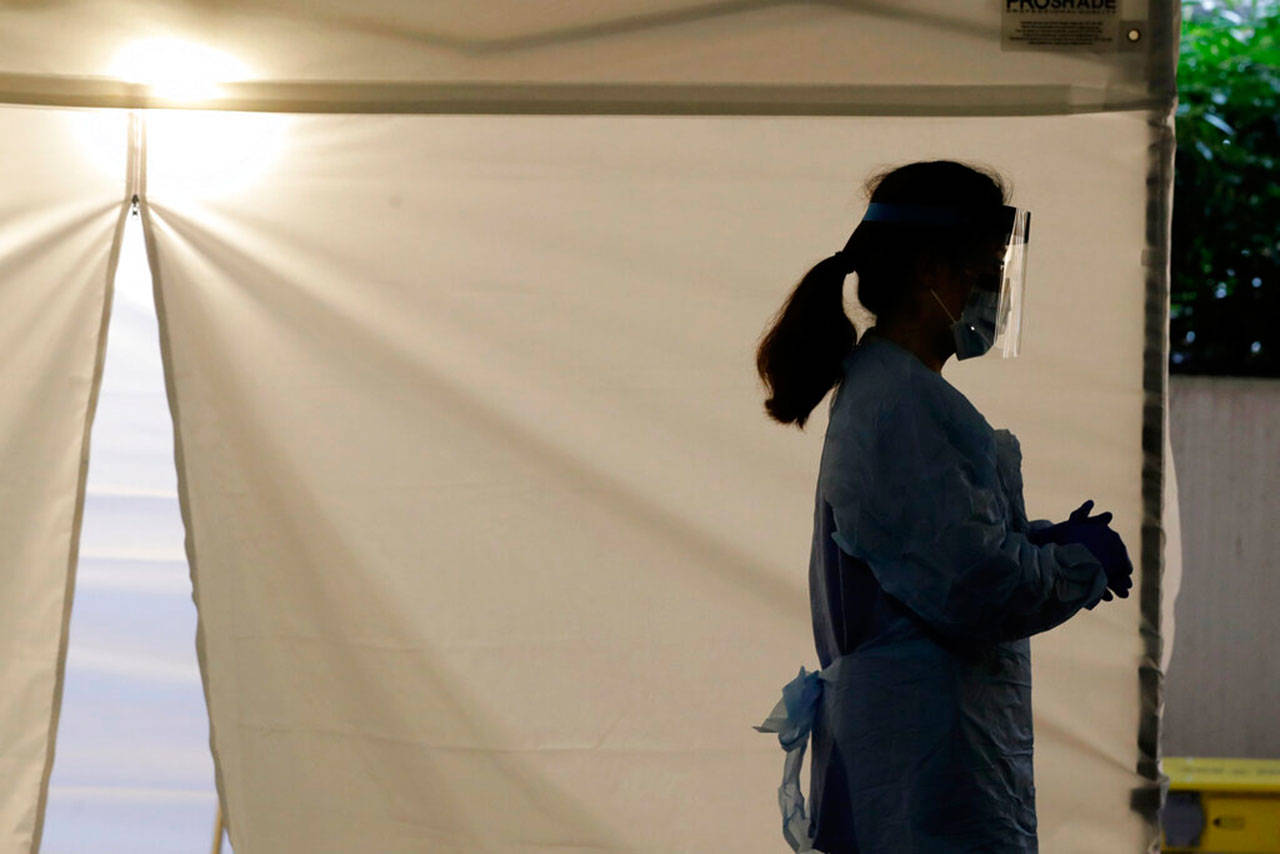By The Herald Editorial Board
We know — judging by the racket of spoons beating on pots and pans in countless social media videos — that nurses and other health care workers on the front lines of the COVID-19 pandemic have seen renewed appreciation for the work they do, even as they face risks to their own health and safety.
And, with National Nurses Day coming May 6, that appreciation is even more timely. So, yes, whether they work in hospitals, clinics, care centers, doctor’s offices, public health agencies or other settings, thank you, nurses.
There’s also new attention for the career possibilities in health care fields, yet, also questions on how to complete and advance the education and training necessary, especially at a time when the pandemic has forced at least temporary changes for higher education, just as it has for public schools, our work and almost all aspects of our daily lives.
While most colleges and universities have adapted quickly to offer distance learning — such as lectures and class discussions through online teleconferencing — other higher education programs have been using that model long before most of us had heard the term “novel coronavirus.”
Among the leaders in distance learning is Western Governors University Washington, an online nonprofit and accredited university that offers more than 60 bachelor’s, graduate and master’s degrees programs in education, information technology, business and nursing and health care management.
WGU, currently operating nationwide, was founded in 1997 by the governors of Washington and 18 other states. Washington state’s affiliate opened in 2011, and since then has awarded more than 19,500 degrees and currently has nearly 12,800 students enrolled. And growing.
The recent attention on health care has resulted in a bump in applications in nursing and health care programs, said Tonya Drake, chancellor for WGU Washington and vice president for WGU Northwest. The online university saw a brief slowing of applications in the first days of the state’s stay-home orders, but since early April has seen a 38 percent increase in student applications.
That interest is welcome, especially as Washington state and Snohomish County look to fill nursing positions, said Kim Williams, chief executive for Providence Health and Services Northwest. Williams and Drake spoke last week with The Herald Editorial Board, appropriately, by video teleconference.
Even before the pandemic increased concern for its impact on health care resources, Williams said, Washington state already was expected to see a shortage of registered nurses and licensed practical nurses between now and 2025.
A nursing workforce survey, released by the U.S. Department of Health and Human Services in 2014, forecasts a surplus of both RNs and LPNs by 2025 nationwide, but the same survey shows the opposite for most of the West, and for Washington and Oregon in particular. By 2025, the number of RNs will fall short of demand by 7,000 in Washington state; by 6,000 in Oregon. For LPNs, the deficit is 1,200 in Washington and nearly 400 in Oregon.
Adding to the problem and the need for well-trained professionals, Williams said, is the average age of the nursing workforce; nearly a quarter of nurses are 55 or older, meaning the last of the baby boomer generation of nurses are nearing retirement age and will be taking their knowledge and experience with them.
“There’s no question that COVID has changed how we deliver care, how we manage patient flow, and that translates to the need for nurses and health care professionals,” Williams said, who praised the partnerships that have been developed among WGU and the nursing programs at traditional colleges, including Everett Community College, University of Washington-Bothell and the hospital system’s own University of Providence in Great Falls, Mont.
WGU Washington does not offer an associate’s degree for nursing students beginning their studies, but does offer other degree programs, including a bachelor of science in nursing for RNs seeking advanced education; a bachelor of science in health information management and a master’s degree in health leadership. There also is a master of business administration program for health care management.
The accredited competency-based programs assess what students know before they begin online classes, which they then can complete at their own speed, Drake said. Students work with a number of faculty during their studies, including student mentors who offer guidance throughout the degree program; course mentors who are experts in the subject matter; program faculty who develop the courses and curriculum; and evaluators who assess student knowledge and grade assignments.
Tuition for the programs is affordable, relative to traditional college programs, Drake said. For example, tuition for six-month term for nurses advancing to a bachelor of science degree is $3,255; and students can add to that value because they can advance through courses at their own speed, Drake said. As well, there are scholarships available — up to $3,000 — through WGU.
How the COVID-19 pandemic will change the landscape of health care in the United States is far from understood, but what is clear — especially for the health care needs in our own communities — there will be a need for dedicated and trained professionals. We can bang a pan for them, too.
Talk to us
> Give us your news tips.
> Send us a letter to the editor.
> More Herald contact information.

























